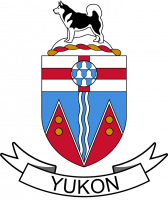What is Conflict of Interest?
Elected officials are expected to conduct themselves ethically, as outlined in the Conflict of Interest (Members and Ministers) Act.
See the Conflict of Interest (Members and Ministers) Act for a complete definition of what constitutes conflict of interest.
Summary of Conflict of Interest goals in the Act
The preamble to the Conflict of Interest (Members and Ministers) Act identifies the following goals:
- In democracies elected officials are expected to conduct themselves ethically.
- Members of the Yukon Legislative Assembly are expected to perform their duties of office and arrange their private affairs in a manner that promotes public confidence and trust in each member’s integrity, that maintains the Assembly’s dignity and that justifies the respect given by society to the Assembly and its members.
- Members of the Legislative Assembly, in reconciling their duties of office and their private interests, are expected to act with integrity and impartiality.
About the Conflict of Interest (Members and Ministers) Act
The Conflict of Interest (Members and Ministers) Act defines what constitutes a conflict of interest. The Act:
- prohibits Members and Ministers from discharging any official function where there is an opportunity or the reasonable appearance of an opportunity for the Member or Minister to further their own private interest;
- defines and prohibits an abuse of office;
- regulates allowable fees, gifts and benefits;
- requires a copy of Members' and Ministers' disclosure statements to be provided to the Conflicts Commissioner;
- prohibits a Member or Minister from being involved in any matter in which they have a conflict of interest;
- prohibits Ministers from certain business and employment activities;
- prohibits former Ministers from accepting contracts with the Government for a six-month period after leaving office;
- permits the Premier to make rules about conflicts of interest for Ministers (which section 15 identifies as those contained in the following bullet, until replaced);
- permits those covered by the legislative scheme to seek advice (which is usually confidential) from the Conflicts Commissioner about whether they are or would be in conflict of interest;
- prescribes what is to occur if a Member or Minister is in conflict of interest;
- provides for complaints by a Member against another Member or Minister, and authorizes the Conflicts Commissioner to investigate such complaints to determine whether a conflict of interest has occurred and, if so, thereafter to make recommendations to the Legislative Assembly about what action (if any) is to be taken in those circumstances; and
- whenever a formal complaint has been made, requires the Conflicts Commissioner to determine whether there was a reasonable basis for the Member to have made such a complaint and, if not, authorizes the Legislative Assembly to take certain action against the Member making such a complaint.
The rules of conduct for Ministers, as identified in section 15 (1) of the Conflict of Interest (Members and Ministers) Act, are as follows:
- Schedule B to Order-in-Council 1981/85 contains the Code of Ethics for members of the Executive Council.
- The Executive Council Code of Conduct Regarding Conflict of Interest (revised November 2011) prohibits Ministers from entering into certain contracts with the Government of Yukon; restricts their purchasing land from or selling land to the Government of Yukon; and requires Ministers to file a separate ministerial disclosure statement with the Clerk of the Legislative Assembly.
- The Ministerial Gift Policy was established by Cabinet to take effect on October 19, 1994. The Act contemplates that these rules may be superseded and new rules filed with the Conflict of Interest Commission. This has not occurred to date.
- Part 13 of the Public Service Act permits Cabinet to make rules dealing with conflicts of interest for Deputy Heads, which section 214 (7) prescribes to be the following (until superseded):
- The Conflict of Interest Policy, Policy 3.39 in the General Administration Manual, made October 27, 1994.
- The Directive on Post-Employment Restrictions, Policy 1.14 in the General Administration Manual, made April 1, 1996.
To date, no other rules have been made and filed with the Conflict of Interest Commission with respect to Deputy Heads.
- Part 4 of the Cabinet and Caucus Employees Act prohibits those employees from discharging any function where there is an opportunity, or the reasonable appearance of an opportunity, for the employee to further their own private interest; prohibits certain business and employment activities; provides for advice from the Conflict of Interest Commission; and provides for party leaders to make rules of conduct.
To date, no rules of conduct have been filed with the Conflict of Interest Commission. Accordingly, section 19 of the Cabinet and Caucus Employees Act provides that the only applicable rules are:
- The Directive on Post-Employment Restrictions, Policy 1.14 in the General Administration Manual, made April 1, 1996, is for Cabinet employees.
